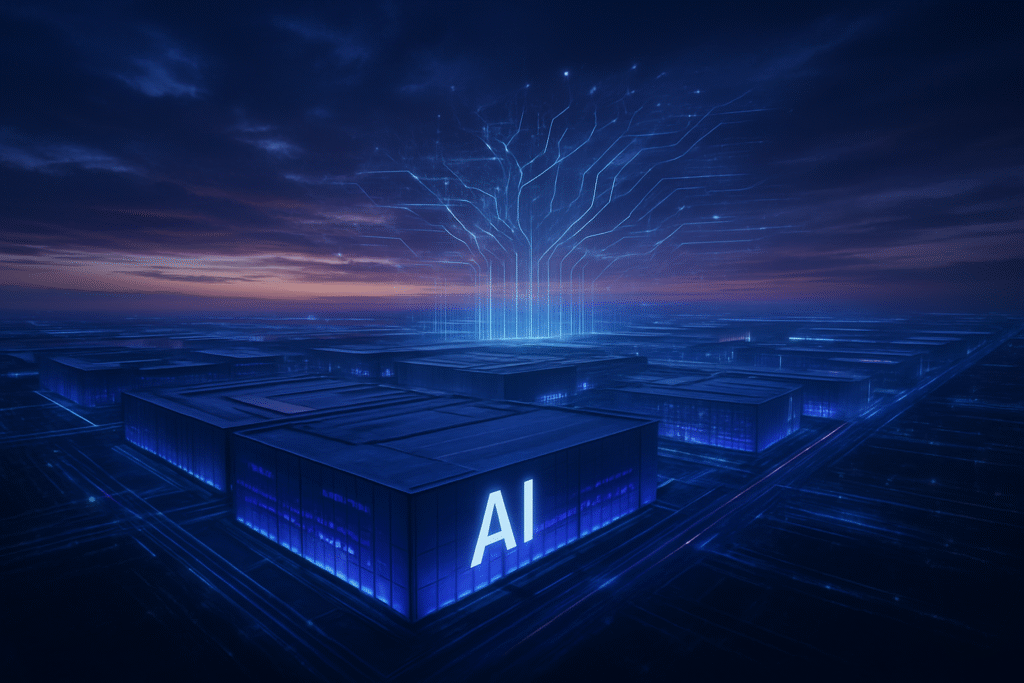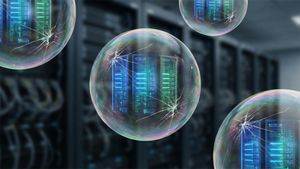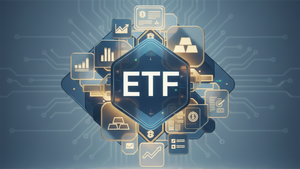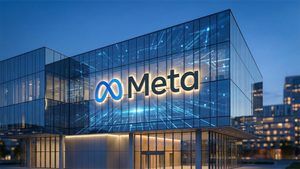
New York, NY & Austin, TX – November 12, 2025 – In a move poised to reshape the landscape of artificial intelligence, Anthropic, a leading AI safety and research company known for its Claude line of AI models, today announced a monumental $50 billion investment in American computing infrastructure. This unprecedented commitment will see the company construct custom AI data centers across the United States, with initial facilities slated for Texas and New York, and operations expected to commence throughout 2026. This strategic pivot marks Anthropic’s first direct foray into building its own major data center infrastructure, moving beyond its prior reliance on cloud-computing partners and signaling a profound shift in the ongoing race for AI supremacy.
The immediate significance of this announcement, made public on Wednesday, November 12, 2025, is multifaceted. It underscores the critical need for dedicated, optimized computing resources to develop and deploy advanced AI systems, driven by the surging demand for Anthropic's Claude models. This investment is not merely about expansion; it's a declaration of intent to control the foundational elements of its AI future, ensuring sustained development at the frontier of AI capabilities. Furthermore, it aligns with national efforts to bolster American leadership in AI and strengthen domestic technology infrastructure, potentially generating approximately 800 permanent jobs and 2,400 construction jobs in its initial phases.
Engineering the Future: Anthropic's Technical Blueprint for AI Dominance
Anthropic's $50 billion infrastructure investment is a testament to the escalating technical demands of frontier AI, moving beyond general-purpose cloud solutions to embrace a bespoke, multi-platform computing strategy. These custom data centers are not merely expansions but purpose-built environments meticulously engineered to optimize the training and deployment of its advanced Claude large language models.
The technical specifications reveal a sophisticated approach to harnessing diverse AI accelerators. Anthropic plans to integrate cutting-edge hardware from various vendors, including Alphabet Inc. (NASDAQ: GOOGL)'s Tensor Processing Units (TPUs), Amazon.com Inc. (NASDAQ: AMZN)'s custom-designed Trainium chips, and NVIDIA Corporation (NASDAQ: NVDA)'s Graphics Processing Units (GPUs). This diversified strategy allows Anthropic to tailor its infrastructure to specific AI workloads, ensuring optimal efficiency for training complex models, low-latency inference, and versatile research. Key partnerships are already in motion: Anthropic has secured access to one million Google TPUs and one gigawatt of computing power by 2026 through a significant cloud computing deal. Concurrently, its collaboration with Amazon on "Project Rainier" is set to expand to over one million Trainium2 chips for Claude model training and deployment by the end of 2025. Trainium2 chips, Amazon's custom AI accelerators, are engineered for immense speed, capable of trillions of calculations per second, and will be integrated into "UltraServers" interconnected by high-speed "NeuronLinks" for minimal latency at scale. The estimated cost for building one gigawatt of AI data center capacity, a benchmark Anthropic aims for, is approximately $50 billion, with about $35 billion dedicated to the chips alone.
This approach marks a significant departure from previous reliance on public cloud computing partners. By building its own custom data centers, Anthropic gains greater control over its compute stack, enabling hardware-software co-design for enhanced efficiency, cost-effectiveness, and security. This strategic shift reduces dependency on external providers, minimizes strategic exposure, and provides a more secure and isolated environment for sensitive training data and model weights, crucial for Anthropic's focus on "Constitutional AI" and ethical alignment. Experts suggest that a hybrid approach combining dedicated infrastructure with cloud services can yield a 20-30% better Total Cost of Ownership (TCO) for mixed workloads.
UK-based Fluidstack Ltd. is a key partner in this endeavor, leveraging its expertise in rapidly delivering gigawatts of power. Fluidstack's involvement highlights the critical need for specialized partners capable of managing the massive power and infrastructure demands of modern AI. Initial reactions from the AI research community and industry experts validate this move, viewing it as a clear indicator of the intensifying "AI infrastructure arms race." The investment underscores the belief that "models without infrastructure are features, not empires," suggesting that control over compute resources is paramount for sustained leadership in AI. These custom data centers are central to Anthropic's ambition to significantly enhance its AI capabilities by accelerating research and development, training larger and more capable models, optimizing performance, reinforcing AI safety, and improving data integration through robust underlying infrastructure.
Shifting Tides: Competitive Dynamics in the AI Arena
Anthropic's $50 billion data center investment is a seismic event that will send ripples through the competitive landscape of the AI industry, intensifying the "AI infrastructure arms race" and redefining strategic advantages for companies across the spectrum.
Direct Beneficiaries: Fluidstack Ltd. stands to gain significantly as Anthropic's primary partner in developing these gigawatt-scale data centers, showcasing its expertise in high-power infrastructure. Construction and engineering firms will see a boom in demand, benefiting from the creation of thousands of construction jobs. Energy providers and utilities will secure massive contracts as these facilities require substantial and reliable power, potentially driving investments in grid upgrades. While Anthropic is leveraging custom chips from Amazon.com Inc. (NASDAQ: AMZN) and Alphabet Inc. (NASDAQ: GOOGL), the direct control over data centers could lead to more bespoke hardware procurement, benefiting specialized semiconductor manufacturers. Local economies in Texas and New York will also experience a boost from job creation and increased tax revenues.
Competitive Implications for Major AI Labs and Tech Companies: This investment fundamentally alters Anthropic's market positioning. By owning its infrastructure, Anthropic gains a strategic advantage through greater control over its compute stack, enabling hardware-software co-design for more efficient, cost-effective, and secure AI development. This allows for sustained development at the "frontier" of AI. For rivals like OpenAI, which is pursuing its own "Stargate Project" with reported investments exceeding $1 trillion, Anthropic's move underscores the necessity of scaling dedicated infrastructure to maintain a competitive edge. Google DeepMind, with its extensive in-house infrastructure via Alphabet Inc. (NASDAQ: GOOGL)'s Google Cloud and TPUs, will continue to leverage its existing advantages, but Anthropic's move highlights a trend where frontier AI labs seek direct control or highly customized environments. Meta Platforms Inc. (NASDAQ: META) AI, also heavily investing in its own infrastructure, will see this as further validation for aggressive build-outs to support its open-source models.
For tech giants like Microsoft Corporation (NASDAQ: MSFT), Amazon.com Inc. (NASDAQ: AMZN), and Alphabet Inc. (NASDAQ: GOOGL), Anthropic's investment signals a potential shift in customer relationships. While still partners and investors, Anthropic may increasingly become a customer for specialized hardware and energy, rather than broad cloud tenancy. This puts pressure on cloud providers to offer even more specialized, high-performance, and cost-efficient AI-optimized solutions to retain top-tier AI clients. Amazon (NASDAQ: AMZN), a significant investor in Anthropic and provider of Trainium chips, could see increased demand for its specialized AI hardware. Google (NASDAQ: GOOGL), also an investor and TPU provider, might see a continued strong relationship for hardware supply, but potentially reduced reliance on Google Cloud for broader compute services.
Potential Disruption and Strategic Advantages: By controlling its infrastructure, Anthropic can fine-tune its hardware and software stack for optimal performance and potentially lower the long-term cost of training and running its AI models. This could lead to more frequent model updates, more capable models, or more competitively priced API access, disrupting competitors reliant on less optimized or more expensive external compute. This vertical integration provides strategic control, reducing dependency on external cloud providers and their pricing structures. The custom-built data centers are "specifically designed to maximize efficiency for Anthropic's AI workloads," crucial for pushing AI research boundaries. While the upfront investment is massive, it promises significant long-term cost savings compared to continuous scaling on public cloud platforms. This move significantly boosts Fluidstack's reputation and expertise, solidifying its position in the specialized data center market.
The broader "AI infrastructure arms race" is characterized by massive capital allocation, concentrating control over essential AI inputs—cloud capacity, advanced chips, and data centers—among a handful of dominant firms. This creates extremely high barriers to entry for new competitors and underscores the strategic importance of energy, with AI data centers requiring massive, reliable power sources, making energy supply a critical bottleneck and a national security concern.
A Watershed Moment: Wider Significance and Lingering Concerns
Anthropic's reported $50 billion investment in AI data centers is more than a corporate expansion; it's a watershed moment that highlights critical trends in the broader AI landscape and raises profound questions about its societal, economic, and environmental implications. This move solidifies a strategic shift towards massive, dedicated infrastructure for frontier AI development, setting it apart from previous AI milestones that often centered on algorithmic breakthroughs.
Broader AI Landscape and Current Trends: This investment reinforces the trend of centralization of AI compute power. While discussions around decentralized AI are growing, the sheer scale of modern AI models necessitates centralized, hyper-efficient data centers. Anthropic's multi-platform strategy, integrating Alphabet Inc. (NASDAQ: GOOGL)'s TPUs, Amazon.com Inc. (NASDAQ: AMZN)'s Trainium chips, and NVIDIA Corporation (NASDAQ: NVDA)'s GPUs, aims to optimize costs and reduce vendor lock-in, yet the overall trend remains toward concentrated resources among a few leading players. This concentration directly contributes to the soaring energy demands of the AI industry. Global data center electricity demand is projected to more than double by 2030, with AI growth annually adding 24 to 44 million metric tons of carbon dioxide to the atmosphere by 2030. A single large-scale AI data center can consume as much electricity as 100,000 households annually. This immense demand often relies on local grids, which still largely depend on fossil fuels, leading to increased greenhouse gas emissions. Crucially, increased compute capacity is directly linked to the development of more capable AI models, which in turn amplifies discussions around AI safety. As a safety-focused AI startup, Anthropic's investment suggests a belief that advanced, well-resourced compute is necessary to develop safer and more reliable AI systems, with governance through compute access seen as a promising approach to monitoring potentially dangerous AI.
Potential Impacts on Society, Economy, and Environment:
- Society: While AI advancements can lead to job displacement, particularly in routine tasks, Anthropic's investment directly creates new employment opportunities (800 permanent, 2,400 construction jobs). The integration of AI will reshape the job market, necessitating workforce adaptation. Ethical considerations surrounding bias, privacy, and the potential for AI-driven misinformation remain paramount. Conversely, AI promises significant improvements in quality of life, especially in healthcare through enhanced diagnostics and personalized treatments.
- Economy: Large investments in AI infrastructure are powerful drivers of economic growth, fueling construction, utilities, and technology sectors, contributing to GDP and tax revenues. However, the substantial capital required reinforces market concentration among a few dominant players, potentially stifling competition. The rapid increase in AI-related capital expenditures has also led to warnings of a potential "AI bubble."
- Environment: The vast electricity consumption of AI data centers, often powered by fossil fuels, leads to substantial greenhouse gas emissions. AI growth could also drain immense amounts of water for cooling, equivalent to the annual household water usage of millions of Americans. Furthermore, the reliance on raw materials for hardware and the resulting electronic waste contribute to environmental degradation.
Potential Concerns:
- Resource Concentration: This $50 billion investment exacerbates concerns that computational power, essential for advanced AI, is becoming increasingly concentrated in the hands of a few corporations. This could limit access for smaller innovators, researchers, and public interest groups, leading to a less diverse and less equitable AI ecosystem.
- Environmental Footprint: The sheer scale of the investment magnifies environmental concerns regarding carbon emissions and water usage. The demand for new data centers often outpaces the development of renewable energy sources, posing a risk to net-zero emission targets.
- Accessibility: High barriers to entry, including cost and infrastructure complexity, mean that many non-industry researchers struggle to pursue advanced AI safety research, potentially limiting diverse perspectives on AI development.
Comparison to Previous AI Milestones: Anthropic's investment differs from previous AI milestones, which often focused on algorithmic breakthroughs (e.g., Deep Blue, AlphaGo, the rise of deep learning). While those showcased AI's capabilities, this investment is fundamentally about providing the infrastructure required to train and deploy such systems at an unprecedented scale. It marks a shift from purely intellectual breakthroughs to a capital-intensive race for raw computational power as a key differentiator and enabler of future AI advancements, akin to the industrial revolutions that required massive investments in factories and transportation networks, establishing the physical infrastructure that will underpin future AI capabilities.
The Road Ahead: Anticipating AI's Next Chapter
Anthropic's $50 billion investment in AI data centers is a clear signal of the company's long-term vision and its commitment to shaping the future of artificial intelligence. This infrastructure build-out is expected to catalyze significant advancements and present new challenges, further accelerating the AI journey.
Expected Near-Term and Long-Term Developments: This enhanced compute power, leveraging Amazon.com Inc. (NASDAQ: AMZN)'s Trainium2 chips and Alphabet Inc. (NASDAQ: GOOGL)'s TPUs, is predicated on the "scaling hypothesis" – the belief that increasing model size with more data and computing power leads to improved performance. In the near term, we can anticipate more capable Claude iterations, accelerating scientific discovery and tackling complex problems. Anthropic's continued focus on "Constitutional AI" means these advancements will likely be accompanied by a strong emphasis on ethical development, interpretability, and robust safety measures. Long-term, this infrastructure will enable the development of AI systems with significantly greater cognitive abilities, capable of more intricate reasoning and problem-solving, pushing the boundaries of what AI can achieve.
Potential New Applications and Use Cases: The advanced AI capabilities unleashed by this infrastructure will primarily target the enterprise sector. Anthropic is poised to drive significant improvements in efficiency across various industries, including healthcare, financial management, and manufacturing, through automation and optimized processes. New services and specialized AI tools are expected to emerge, augmenting human workforces rather than simply replacing them. The expanded compute resources are also crucial for dramatically speeding up scientific research and breakthroughs, while internal applications, suchs as Claude-powered assistants for knowledge management, will enhance operational efficiency within Anthropic itself.
Key Challenges that Need to Be Addressed: The path forward is not without its hurdles. The most pressing challenge is the immense energy supply required. Anthropic projects the entire AI industry will need 50 gigawatts of power by 2028, a capacity for which the U.S. is currently unprepared. Securing reliable, abundant energy sources and modernizing electric grids are critical. Cooling also presents a significant technical challenge, as high power densities within AI data centers necessitate advanced solutions like direct-to-chip liquid cooling. Regulatory hurdles for data center and energy infrastructure permitting are cumbersome, requiring streamlining. Ethical implications, including the potential for advanced AI to cause harm or manipulate, remain a paramount concern, necessitating clear guidelines and accountability. Furthermore, supply chain constraints (labor, specialized chips) and geopolitical tensions could impede expansion, alongside the sheer capital intensity of such ventures.
Expert Predictions: Experts predict an escalating "AI infrastructure spending spree" globally, with data center capacity nearly tripling by 2030, largely driven by AI. Spending on AI infrastructure is expected to exceed $200 billion by 2028, potentially surpassing $1 trillion by 2029. This intense competition involves major players like Amazon.com Inc. (NASDAQ: AMZN), Microsoft Corporation (NASDAQ: MSFT), Alphabet Inc. (NASDAQ: GOOGL), Meta Platforms Inc. (NASDAQ: META), OpenAI, and Anthropic. A significant shift from AI model training to inference as the primary workload is anticipated by 2030. Many AI experts believe human-level artificial intelligence is a realistic possibility within decades, with AI primarily serving as an augmentative tool for human workforces. Growing concerns over energy consumption will increasingly drive data centers towards optimized architectures, renewable energy, and more efficient cooling technologies.
A New Foundation for AI's Future: The Long View
Anthropic's $50 billion commitment to building a dedicated network of AI data centers across the U.S. marks a pivotal moment in the history of artificial intelligence. This strategic investment, announced on November 12, 2025, underscores a profound shift in how leading AI companies approach foundational infrastructure, moving beyond mere algorithmic innovation to assert direct control over the computational bedrock of their future.
Key Takeaways: The core message is clear: the future of frontier AI hinges on massive, optimized, and dedicated computing power. Anthropic's unprecedented $50 billion outlay signifies a move towards vertical integration, granting the company greater control, efficiency, and security for its Claude models. This domestic investment is poised to create thousands of jobs and reinforce American leadership in AI, while simultaneously intensifying the global "AI infrastructure arms race."
Significance in AI History: This development stands as a testament to the "big AI" era, where capital-intensive infrastructure is as crucial as intellectual breakthroughs. Unlike earlier milestones focused on conceptual or algorithmic leaps, Anthropic's investment is about scaling existing powerful paradigms to unprecedented levels, providing the raw compute necessary for the next generation of sophisticated, resource-intensive AI models. It marks a foundational shift, akin to the industrial revolutions that required massive investments in factories and transportation networks, establishing the physical infrastructure that will underpin future AI capabilities.
Long-Term Impact: The long-term ramifications are immense. We can anticipate an acceleration of AI progress, with more powerful and ethical AI models emerging from Anthropic's enhanced capabilities. This will likely drive innovation across industries, leading to new applications and efficiencies. However, this progress comes with significant challenges: the immense energy and water footprint of these data centers demands urgent development of sustainable solutions. The concentration of computational power also raises concerns about resource accessibility, market competition, and the equitable development of AI, necessitating ongoing dialogue and proactive governance.
What to Watch For: In the coming weeks and months, observers should closely monitor the construction progress and activation of Anthropic's initial data center sites in Texas and New York. Further announcements regarding additional locations and the tangible advancements in Anthropic's Claude models resulting from this enhanced compute capacity will be crucial. The competitive responses from other AI giants, and the broader industry's efforts to address the escalating energy demands through policy and sustainable innovations, will also be key indicators of AI's evolving trajectory.
This content is intended for informational purposes only and represents analysis of current AI developments.
TokenRing AI delivers enterprise-grade solutions for multi-agent AI workflow orchestration, AI-powered development tools, and seamless remote collaboration platforms.
For more information, visit https://www.tokenring.ai/.





